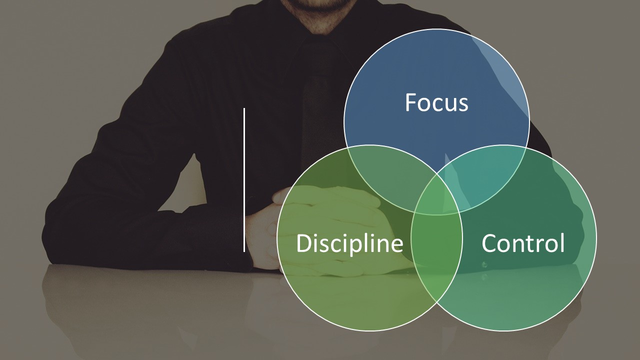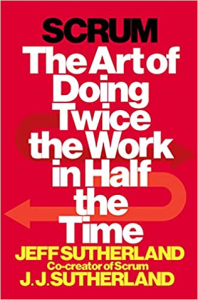FTI (or Failure to Implement) is one of the biggest barriers to business success. In the last 37 years as business consultant, I have observed that my most successful clients are the ones that execute their strategies and plans. The converse is also true – lower performance is often a result of a failure to implement strategies and plans. These business owners keep focused on “Business As Usual” (BAU) but fail to implement their plans for growth and profitability. But how do we improve our ability to implement?
Its easy to get caught up in “business as usual” and to bump the Quadrant 2 activities1 (Important but Not Urgent tasks) and as a result we simply never get time to implement the actions that can make a fundamental difference in our business eg. strategy, training, business development, planning, life balance, process improvement, leadership, etc.
There are 3 key drivers that are the hallmarks of successful people:
Focus – maintaining a clear focus on the stuff that matters;
Discipline – is the ability to do something in “a controlled and habitual way” thereby resisting the temptation to be distracted from your path;
Control – taking control of your environment and the situation to enable more productive outcomes

In the global best selling book “Scrum – The Art of Doing Twice the Work in Half the Time“, author Jeff Sutherland talks about the massive losses in productivity due to “context switching” (changing tasks or multi-tasking) indicating that working on 5 tasks at once means you will lose 75% of your effective time to context switching. This is despite the myths that surround individual abilities to do this. Maintaining your focus on the priority task at hand and completing it is one of the hallmarks of highly successful people. In Scrum, Jeff talks about improving team focus and productivity by asking 3 simple questions at a daily team huddle.

In the global best selling book “Scrum – The Art of Doing Twice the Work in Half the Time“, author Jeff Sutherland talks about the massive losses in productivity due to “context switching” (changing tasks or multi-tasking) indicating that working on 5 tasks at once means you will lose 75% of your effective time to context switching. This is despite the myths that surround individual abilities to do this. Maintaining your focus on the priority task at hand and completing it is one of the hallmarks of highly successful people. In Scrum, Jeff talks about improving team focus and productivity by asking 3 simple questions at a daily team huddle.
But, after reading the Scrum book and working with clients to begin applying its key principles, I started to postulate that “…if the 3 questions worked for teams why wouldn’t the same 3 questions work for individuals?”. I have since modified and started using the questions in my own business and with my business clients on a regular basis with outstanding results. In my model, I have a weekly, 10 minute accountability call with my coaching clients where I ask the critical questions…
So what are the 3 Questions?
Like all good things, the questions are simple yet powerful:
- What did you do in the last week that has helped move you towards your goals?
- What will you do this week to move you towards your goals?
- Are there any barriers getting in the way of achieving your goals?
But how does asking those questions help?
The Questions are all about focus, discipline and control. I ask my clients to focus on the 1 or 2 key strategic tasks that they MUST get done in the next week to achieve their goals. I’m not interested in discussing all the the BAU things they have on – just the priority strategic actions.
Focus: To participate in the program, my clients complete a short online form with the Questions prior to our 10 minute call each Monday. The Questions focus them on the priority strategic actions and help them set the context for the week. The actions are related to their plans which are set in advance.
Discipline: having to “front up” for an accountability call encourages them to take the time to prepare and make the commitment to attend. I am currently running at 100% engagement for the last 12 weeks for all participants, so the evidence would suggest that its working.
Control: Discussing what we did last week (and comparing that to what we said we would do) and the barriers to implementation are important for taking control. Addressing the barriers is an important component of taking control. This is why I only ask for 1 or 2 strategic actions each week so that we don’t set ourselves up for failure.
Anecdotally, I have seen massive improvements in outcomes for many of my clients in a short period of time. They now seem to magically find time for important strategic actions and we are implementing them in rapid succession. The 3 Questions are making a real difference.
How do I make it happen in my business?
These are the 4 steps I’d recommend:
- Build a Plan – Make sure you have a documented plan for at least the next 12 months and cascade this to clear 90 Day actions. How do you build the plan?
- “Done with You” – Use our Business Accelerator Program to work with us to build your plan – more information
- “DIY” – Access the free resources on this site especially the Business Diagnostics and the Annual Operating Plan process – more information
- Ask the Questions – every week ask yourself the 3 Questions. Diarise a time to do this and have the discipline to make it happen. This could be questions you ask of your Partners or at a Team Meeting – just make sure you are disciplined to ask them of yourself. (POWER TIP: If you are really ambitious then ask yourself the questions each morning before you commence work!). If you lack the drive and/or discipline then talk to me about joining our program.
- Measure your progress and celebrate the wins – Take the time to evaluate your progress and make sure you celebrate the small wins.
- Rinse and Repeat – Every 90 Days revise the plan and cascade some new actions. Continue to ask the questions and implement!
Russell Cummings
25 August 2022
_______________
1For more on Quadrant 2 activities read Stephen Covey’s book “The 7 Habits of Highly Effective People” or watch this short video – https://www.youtube.com/watch?v=aG3ETWm9VUQ



